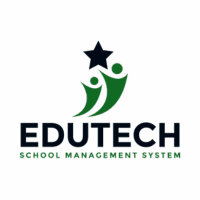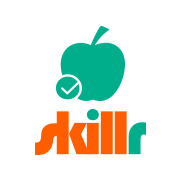Description

EduTech

Skillshare clone script - Skillr
Comprehensive Overview: EduTech vs Skillshare clone script - Skillr
a) Primary Functions and Target Markets
Primary Functions:
-
Course Creation and Management: Skillr, like Skillshare, provides a platform where educators and instructors can create and manage their own courses. This includes tools for video uploads, course structuring, and supplementary materials.
-
Student Enrollment and Management: Facilitates the enrollment of students, allowing them to browse through various courses, enroll in them, and track their progress.
-
Community Interaction: Skillr enables interactions between students and instructors through discussion forums, Q&A sections, and possibly live sessions, fostering a community-based learning environment.
-
Monetization and Analytics: Course creators can monetize their offerings and have access to analytics to track engagement, completion rates, and other critical metrics to improve content.
-
Accessibility and User Experience: The platform is optimized for various devices, ensuring that users can access content from desktops, tablets, and mobile devices seamlessly.
Target Markets:
- Individual Instructors and Educators: Similar to Skillshare, Skillr targets educators who seek to share their knowledge with a global audience.
- Students and Lifelong Learners: Individuals seeking to acquire new skills or hobbies, from professionals to hobbyists, are a primary audience.
- Small to Medium Enterprises (SMEs): Organizations looking for custom learning solutions and training modules for their teams.
- Educational Institutions: Schools and colleges that want to supplement their curriculum with online resources.
b) Comparison in Terms of Overall Market Share and User Base
Currently, EduTech platforms like Skillshare and Skillr clones are experiencing increasing demand due to the growth of online learning. However, Skillshare holds a more established position in the market compared to newer clones like Skillr. Skillshare has a broader user base, brand recognition, and a well-established community and library of courses.
Skillr, being a clone or a direct competitor, might have a smaller market share, primarily aimed at capturing niche markets or regions where Skillshare is not as dominant. The user base for Skillr could be growing, but it might not match Skillshare's extensive reach immediately.
A precise comparison would depend on specific market data, which requires access to industry reports and analytics data that are not publicly detailed.
c) Key Differentiating Factors
-
Customization and Flexibility:
-
Skillr: As a clone script, Skillr might offer more customization possibilities for entrepreneurs seeking to create their own brand under their regulations. This can include bespoke branding, unique payment integrations, and specific course format adjustments.
-
Skillshare: Offers a solid structure with some customization for instructors, but the platform's flexibility might be more limited in comparison to a customizable script like Skillr.
-
-
Monetization Models:
-
Skillr: Depending on implementation, Skillr can allow for various monetization methods such as one-time payments, subscriptions, or even ad-based revenue for the platform owner.
-
Skillshare: Primarily follows a subscription model where members access courses through a paid membership, with instructors earning royalties based on minutes watched.
-
-
Market Position and Accessibility:
-
Skillr: Often more adaptable to specific regional markets and niches because of its customizable nature. This can make it attractive for emerging markets or specialized educational niches.
-
Skillshare: As a market leader, it offers extensive resources, partnerships, and a well-tested platform but may not be as agile in meeting niche demands quickly.
-
-
Community Features:
-
Skillr: As flexible platform, Skillr might support enhanced community features and integration with external social media/interaction tools as configured by the platform owner.
-
Skillshare: Has an established community with active interactions, reviews, and project-based learning emphasizing peer feedback.
-
-
Pricing and Entry Barriers:
-
Skillr: The initial investment could be variable based on the level of customization, hosting, and support required.
-
Skillshare: For users, it typically involves straightforward subscription fees, while instructors join through a clear community-driven process without significant initial costs.
-
In conclusion, while Skillr and similar platforms offer promising capabilities, Skillshare leads in widespread recognition and an established educational framework. The choice between them would often come down to targeted needs, localization, and the desired degree of control over platform operations.
Contact Info

Year founded :
1991
Not Available
Not Available
United Arab Emirates
Not Available

Year founded :
Not Available
Not Available
Not Available
Not Available
Not Available
Feature Similarity Breakdown: EduTech, Skillshare clone script - Skillr
When comparing EduTech and a Skillshare clone script like Skillr, there are several aspects to consider in terms of core features, user interfaces, and unique features. Here’s a breakdown:
a) Core Features in Common
-
Course Management:
- Both platforms offer tools for creating, organizing, and managing courses, including video lessons, quizzes, and supplemental materials.
-
User Profiles:
- Users can create profiles, which may include personal information, learning preferences, and history.
-
Payment and Monetization:
- Integration with payment gateways to facilitate course purchases and instructor payouts.
-
Rating and Reviews:
- Features allowing students to rate courses and leave feedback, helping others decide on courses to take.
-
Search and Discovery:
- Search functionalities and recommendation algorithms to help users find courses of interest.
-
Responsive Design:
- Both platforms typically offer a responsive design, ensuring usability across various devices, including desktops, tablets, and smartphones.
-
Communication Tools:
- Tools for interaction between students and instructors, such as messaging, discussion forums, or Q&A sessions.
-
Analytics and Reporting:
- Basic analytics for instructors to track course performance and student engagement metrics.
b) User Interfaces Comparison
-
EduTech:
- EduTech platforms often emphasize a structured and academic feel, with interfaces designed to support complex educational needs like compliance training or formal accreditation.
- Typically feature more robust administrative dashboards given their likely use in formal educational settings.
- Priority might be given to integrative tools that sync with broader educational software.
-
Skillr (Skillshare Clone Script):
- Skillr might offer a more modern and casual interface, focusing on ease of content consumption and creation.
- More visual and media-rich, emphasizing thumbnails and video previews to attract users to different courses.
- Simple, intuitive navigation options reflecting a focus on user journeys typical to hobbyists and lifelong learners.
c) Unique Features
-
EduTech:
- Accreditation Support: May provide tools to track learner progress against certificate or degree standards.
- SCORM/AICC Compliance: Support for these standards aiming at enterprises or educational institutions requiring compliance.
- Interactive Learning: Enhanced interactive learning tools, such as virtual classrooms, simulations, or live assessments, often supports diverse educational settings.
- Institutional Integration: More extensive integration capabilities with institutional systems (like SIS or LMS).
-
Skillr:
- Community Focus: Greater emphasis on community-building features, such as user-generated content or user groups/forums.
- Creative Tools: Tools catered towards creative professionals, offering resources or features tailored to niche topics like graphic design, animation, etc.
- Freemium Model: Potential for a model offering a blend of free and paid content to nurture a high volume of user-generated content.
- Social Learning: More social learning features, such as badges, gamification elements, or learning paths curated by users.
These differentiators mean that each platform can appeal to distinct user bases, with EduTech often catering to more formal educational environments, whereas Skillr targets a general audience looking for diverse, on-demand courses.
Features

Not Available

Not Available
Best Fit Use Cases: EduTech, Skillshare clone script - Skillr
When considering products like EduTech and the Skillshare clone script - Skillr, it's important to identify their unique strengths and how they cater to various business needs. Here's a detailed analysis:
a) For what types of businesses or projects is EduTech the best choice?
EduTech Best Fit Use Cases:
-
Traditional Educational Institutions:
- Schools and universities aiming to digitize their curriculum can use EduTech platforms to enhance learning experiences through interactive content, online assessments, and virtual classrooms.
-
Corporate Training Programs:
- Businesses seeking to standardize and disseminate knowledge across global offices can utilize EduTech solutions for creating custom learning modules tailored to employee skill gaps.
-
EdTech Startups:
- Startups looking to innovate in the education space can leverage EduTech platforms to create new educational tools, apps, or specialized learning modules for niche markets.
-
Government and NGOs:
- Organizations focused on public education and workforce development can employ EduTech solutions for community outreach and upskilling programs, providing accessible learning to all.
b) In what scenarios would the Skillshare clone script - Skillr be the preferred option?
Skillshare Clone Script - Skillr Best Fit Use Cases:
-
Online Course Marketplaces:
- Entrepreneurs interested in launching a platform for creators to share expertise in various fields, from arts to technology, would benefit significantly from a Skillshare clone like Skillr.
-
Influencer and Expert Platforms:
- Professionals and influencers seeking to monetize their skills through self-created courses can use Skillr to build personalized course offerings for their audience.
-
Community-Based Learning Hubs:
- Community organizations or local businesses wanting to promote local talent and share community knowledge can use Skillr to offer and manage courses online.
-
Scaling Artisan and Hobbyist Learning:
- Skillr can serve hobbies-based businesses looking to scale their operations by offering classes on crafting, cooking, photography, etc., thus turning passion into profit.
d) How do these products cater to different industry verticals or company sizes?
Industry Verticals and Company Sizes:
-
EduTech:
- Verticals:
- Primarily targets education (K-12, higher education), corporate training, and continuous professional development sectors.
- Company Sizes:
- Suitable for large-scale institutions and enterprises due to its comprehensive tools and potential for customization and scalability.
- Verticals:
-
Skillr (Skillshare Clone Script):
- Verticals:
- More focused on the gig economy, arts and crafts, technological skills, wellness, and lifestyle learning sectors.
- Company Sizes:
- More adaptable for SMEs and individual entrepreneurs but scalable to accommodate larger educational marketplaces as well.
- Verticals:
Conclusion: EduTech is ideal for structured, curriculum-based learning and corporate environments, offering robust features for content management and delivery. Skillr, on the other hand, is a versatile platform designed for dynamic and diverse course offerings, ideal for creators and businesses looking to offer skills-based learning on a scalable platform. By aligning the choice of solution with your specific educational goals, business type, and target market, you can optimize both impact and user engagement.
Pricing

Pricing Not Available

Pricing Not Available
Metrics History
Metrics History
Comparing undefined across companies
Conclusion & Final Verdict: EduTech vs Skillshare clone script - Skillr
To deliver a well-rounded conclusion and final verdict on EduTech and Skillshare clone script - Skillr, we'll examine the overall value, pros and cons, and recommendations to help users make an informed decision.
Conclusion and Final Verdict
a) Considering all factors, which product offers the best overall value?
When weighing the overall value between EduTech and Skillr, it is critical to consider factors such as cost, functionality, ease of use, scalability, and support.
-
EduTech: EduTech typically provides a more comprehensive suite of features tailored to creating online educational platforms. It often offers enhanced scalability options, making it suitable for both small startups and large institutions looking to expand significantly.
-
Skillr: Skillr may be more cost-effective initially, especially for smaller enterprises or individual entrepreneurs. It can replicate Skillshare's basic functionality rapidly, with essential features that are ideal for smaller-scale operations or niche markets.
Best Overall Value: EduTech generally offers the best overall value for larger organizations or those with scalability in mind due to its more robust and flexible features. For smaller operations, Skillr may provide adequate value given its lower cost and straightforward implementation.
b) What are the pros and cons of choosing each of these products?
-
EduTech:
Pros:
- Highly scalable and customizable.
- Comprehensive feature set, including advanced analytics and integration options.
- Strong support and community.
- Proven track record with larger institutions.
Cons:
- Higher initial cost and potential additional expenses for customization.
- May require more technical expertise to fully leverage advanced features.
-
Skillshare clone script - Skillr:
Pros:
- Lower cost of entry and maintenance.
- Quicker to deploy, especially for businesses aiming for rapid market entry.
- Simplified feature set can be easier to manage for small teams or individual entrepreneurs.
Cons:
- Limited scalability and customization options compared to EduTech.
- May lack advanced features needed for larger or more diverse educational platforms.
- Support and community might not be as extensive.
c) Are there any specific recommendations for users trying to decide between EduTech vs Skillshare clone script - Skillr?
-
Recommendations for Users:
-
Assess Scale and Growth: Consider the size of your intended user base and the projected growth of your platform. If you anticipate significant growth, EduTech might be more suitable due to its scalability options.
-
Feature Requirements: Identify the must-have features for your educational platform. If your focus is on basic course creation and delivery, Skillr may be sufficient. For advanced features like analytics, integration with other platforms, or unique user experiences, EduTech is likely the better choice.
-
Budget Constraints: Evaluate your budget for the short and long term. Skillr can offer a cost-efficient solution initially, but EduTech might provide better value over time due to its robust offering and scalability.
-
Technical Resources: Consider the technical expertise available to you. EduTech might require more in-house tech resources or external support for full customization, whereas Skillr is often simpler to manage.
-
In conclusion, the choice between EduTech and Skillr hinges on the specific needs of the user regarding scale, functionality, budget, and technical requirements. Larger, growth-focused organizations may find EduTech a prudent investment, while smaller entities or individuals may find Skillr to be a practical and economically sound solution for launching their educational platform swiftly.
Add to compare
Add similar companies



